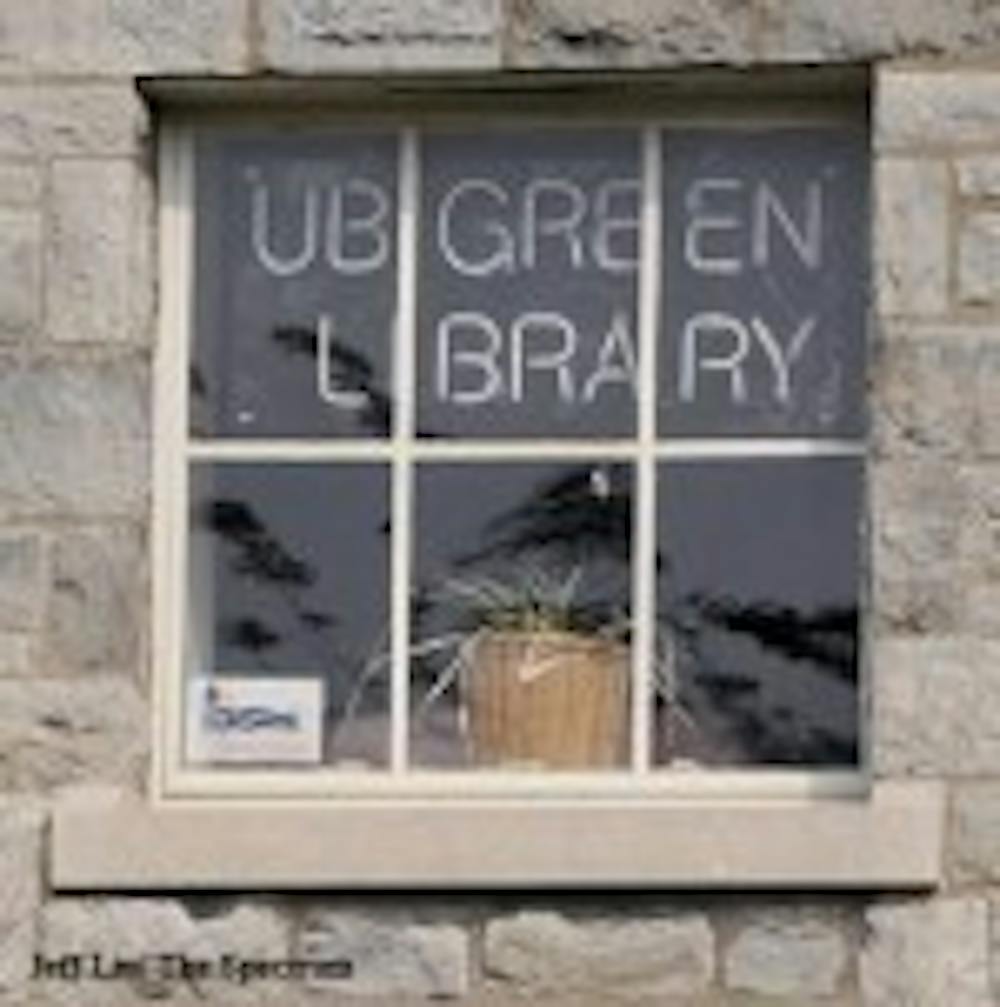Walter Simpson, former director of UB Green, announced his retirement last semester. His position as the university's energy officer has not been filled as of yet.
In an interview with The Spectrum in March, Associate Vice President for University Facilities and the Chairman of the Environmental Task Force Michael Dupre announced that the university would conduct a nationwide search for a new head of office after Walter Simpson officially retired.
Dupre stated he hoped that the position would be filled by the beginning of this semester.
The progress that has been made encompasses the completion of paperwork that will allow Dupre to begin advertising for the position.
"We have finished the position description and documents for posting the job opening in advertisements," Dupre said.
It will take some time because there is a high demand for people to fill similar positions across the country, Dupre said. He hopes to advertise the job, make a committee to interview applicants and have candidates for the position before the fall semester is over.
Walter Simpson is currently working on his own environmental advocacy outside the university with a number of volunteer groups including an environmental group that is protesting a coal burning plant in Jamestown.
Simpson is looking into available work including a position as an environmental consultant for the SUNY system, to assess energy use for all 64 SUNY colleges and universities.
Despite a dispute between Simpson and the university that left Simpson slighted, he says he still has many ideas for the university's green effort.
"Rearrange the way people think about going to school," Simpson said.
Simpson explained that UB could increase enrollment without building new buildings by utilizing the current vacant spaces on campus.
By increasing the enrollment during the summer semester to full occupancy, Simpson explained that this could help the school achieve its goal of increasing student enrollment by 40 percent by 2020 without having a significant effect on the environment.
"School isn't always... you start in late August and you are done by May 1. If you could convince students and faculty that this is a viable approach to education, you can increase the intensity of space use on campus," Simpson said.
The goal of climate neutrality is impossible unless these techniques are employed, he warned.
According to Erin Cala, a UB Green environmental educator, the organization is coming up with many new initiatives to reach climate neutrality on campus.
New programs for this year include a UB Green Book Club, where students will read books by environmentalists to learn new techniques of teaching and living green.
UB Green is offering students and community members' new opportunities to volunteer with campus clean-ups and recycling initiatives.
One UB Green initiative is the University Recycling Program, which takes care of recycling over 30 percent of the school's waste, according to the UB Green Web site. The goal of the recycling initiative is to reach 50 percent of total waste recycled.
"Our community relations office does a lot of work in the community supporting neighborhood clean ups, painting and restoring public school grounds, and also educating people about the environment," Cala said.
Raphael Rosenbaum, vice president of academics for the Environmental Networking Club (ENC), believes UB Green is doing well, but could be doing exponentially more if they had more staff.
Two full-time employees and a small group of student interns are not enough to cover all the ground on this campus, Rosenbaum said.
Cala is the only professional staff member currently listed on the UB Green Web site, along with five student assistants.
"[We are] connecting the various efforts on campus to make a more collaborative effort towards environmental sustainability," Rosenbaum said, explaining the role of the ENC.
Emily Bauer, a student representative on the Environmental Stewardship Committee (ESC), a group whose goal is to make our campus free of greenhouse gases, believes that the ESC has the power to make university campus eco-friendly.
"UB Green's hands are tied," Bauer said.





